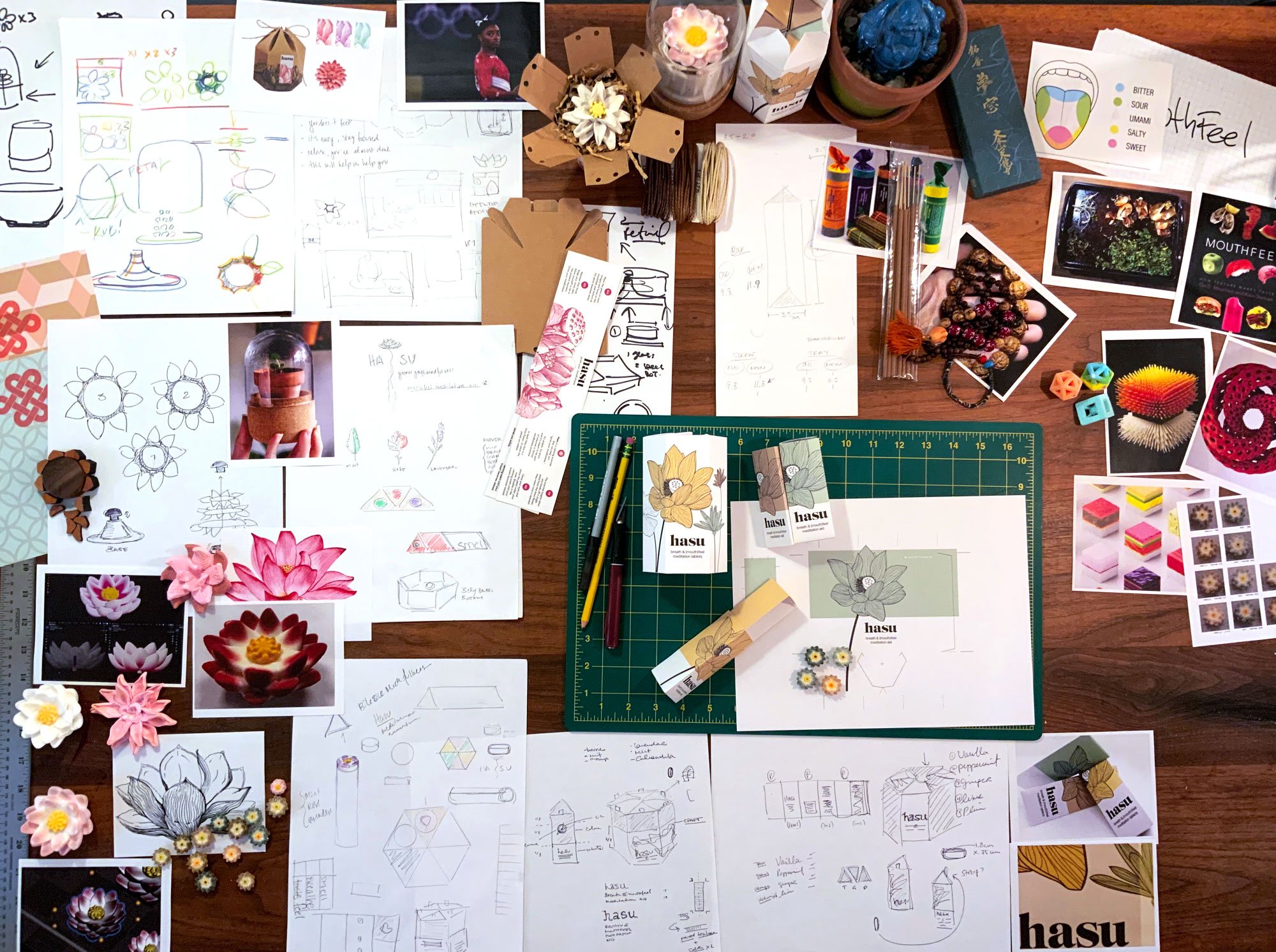Designing Space For Mindfulness

Hasu ZenRoom Toolkit
Hasu has curated a unique collection of popular mediation aids under a very simple framework, and provides facilitated workshops on how to use them.
Meditation Mint
Many people want to meditate more but feel they don’t have the time. The Hasu Meditation Mint is a short 2 minute exercise that was designed for small moments in your day.
Hasu ZenRooms
The purpose of Hasu is to make mindfulness accessible.
One way we do this is by helping institutions of all kinds optimize their Zen Room experience.
Information & Resources
Here are links to information that inspires us and guide our thinking.
-
Sensory awareness during meditation helps us detach from negative, often unconscious patterns of thought and helps us learn to live in the present moment. It also provides an opportunity for respite from the hectic realities of everyday life.
By frequently turning into your senses, you relieve pre-existing tensions and cultivate a habitual calming technique.
Additional Information:
-
While meditation is often associated with sitting still for extended periods of time, micro-meditations can be just as effective for cultivating a mindful lifestyle. Short micro-meditations allow you to momentarily open and enhance your senses, which can translate more seamlessly into a sense of presence during your regular daily activities.
Additional Information:
-
Meditation is effective only when practiced consistently on a habitual basis. Habits are a fundamental aspect of routines. Once you've performed something frequently enough, it becomes a habit that comes naturally and without difficulty as you go about your day.
By employing Hasu through daily micro-meditations, you cultivate a habit of actively tapping into your senses and being attuned to each passing moment (and vice versa). It This positive feedback loop promotes the self-regulation and self-awareness necessary for recognizing and managing the automatic negative reactions that occur throughout your day.
-
Researchers have found that visual cues can serve as effective reminders when building positive new habits – what one study called “reminders through association.” The idea is to have a visual aid to remind you of your mindfulness intentions. These visual aids can ground you and further enhance your senses during your mindful moment.
Indeed, these recent scientific findings echo the use of visual aids — such as mandalas — by early Buddhists during meditation. Nowadays, miniature statues of the Buddha are often kept at home as a visual reminder and aid during daily meditation practice.
Hasu lets you connect with a tangible, mindful reminder that is disconnected from technology. It also blends in beautifully at your bedside, work desk, or meditation stand, creating a positive visual association with your mindfulness practice.
-
In a workplace environment with constantly changing demands, taking a brief, mindful moment can smoothen the transition between tasks and enhance your performance. Hasu is a portable, micro-meditation aid that can be used during your workday, encouraging you to reset your intentions, desired outcomes and action plans for a more intentional relationship with work.
Additional Information:
-
Mindful eating is an approach to food that focuses on individuals' sensual awareness of their food and the experience. It’s about deliberately paying attention to your food from moment to moment. Mindful eating is also about identifying cravings. Much of the food we eat is not for bodily nourishment, but rather to satisfy a craving – whether emotional, habitual or tactile.
Additional information:
-
-




